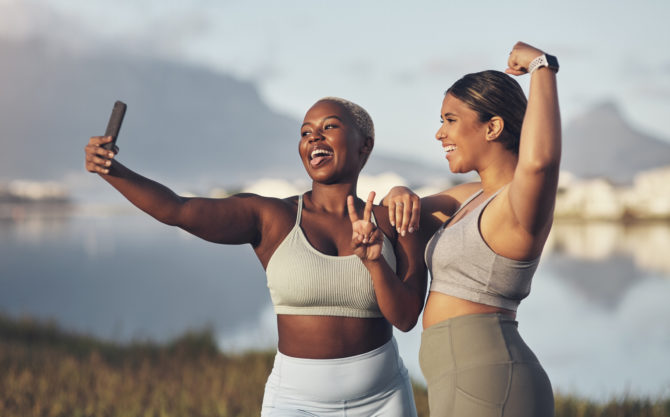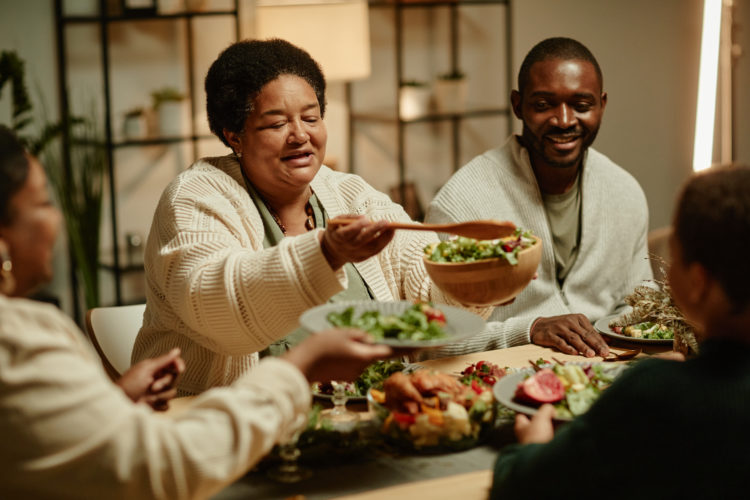
The body positivity movement has become increasingly popular in recent years, largely due to individual journeys and experiences being more openly shared across social media platforms.
The roots of the movement go back to the late 1960s when fat activism first emerged. The National Association to Aid Fat Americans (NAAFA) criticized the diet industry and created campaigns that demanded equal rights treatment for people of higher weights.
Supporters of NAAFA protested against biases and discrimination — specifically against the fashion and beauty industries — that they claimed profited from making people feel inadequate and insecure, especially minorities.
Over time, this evolved into the body positivity movement we see today, the one that primarily revolves around challenging narrowly defined societal standards of beauty. Some say this shift away from the movement’s roots has resulted in a watered-down movement that’s no longer effective, while others say it is more inclusive and empowering than ever.
We aren’t here to choose a side. Today, we’re going to take a closer look at body positivity and the role it plays in our day-to-day lives, as well as the lives of the people around us.
Body positivity definition
In short, body positivity is the act of embracing and celebrating all body types, regardless of gender, size, shape, skin tone and physical abilities. It’s the recognition that everybody (and every body) is deserving of love and acceptance.
In recent years especially, there have been many concerns expressed that the body positivity movement normalizes obesity and gives people a “permission slip” to adopt unhealthy eating behaviors or other health conditions. While certain individuals may perpetuate these beliefs, these ideologies are not at the core of the movement.
True body positivity is about inspiring people to love their bodies despite any physical attributes that may be conventionally marked as “flaws” or “unattractive,” while simultaneously encouraging them to take better care of themselves.
In other words, exercise because you love your body, not because you hate it.
The importance of body positivity
Body positivity has been shown to reap incredible benefits on both the psychological and physical health of the individuals who regularly engage in the practice.
It can feel a little weird to start though. Whether you’ve spent the last so many years of your life actively disliking your body, or simply never gave it much thought, body negativity is a habit.
Body positivity, as well, is a habit; one that is built through consistent effort, conscious intention and a genuine desire to improve your relationship with your body.
An article published by NPR discussed establishing the habit of body positivity can lead to more consistent and effective self-care behaviors (such as exercise and nutrition), fewer health illnesses and lower risk of mental health conditions.
Ways to practice body positivity
Using affirmations for body positivity is an incredibly popular method right now (a quick search on Pinterest will yield you millions of results), but affirmations are just one piece of the puzzle.
Some of the best ways to practice body positivity include:
- Prioritizing your health over the number on the scale
- Compliment others freely and without expectation
- Unfollow influencers or fitness pages that make you feel bad
- Stop comparing yourself and your body to others
- Surround yourself with inspiring, loving, supportive people
- Treat yourself and your body with the same love you treat others
- Don’t take every negative thought to be truth, challenge them instead
- Wear clothes that genuinely make you feel good and confident
- Do something kind for your body (go on a walk, get a foot massage, etc.)
- Practice genuine self-compassion and self-love
- Nourish your body with good, nutrient-rich, delicious food
- Actively work on reframing negative self-talk to be positive
And if you aren’t sure or are overwhelmed with where to start, reach out to us today.
Start your health journey today
Seeds of Hope is an eating disorder clinic in the southeastern ranges of Pennsylvania that specializes in treating all types of eating disorders, including Anorexia Nervosa, Bulimia Nervosa, Binge-Eating Disorder (BED), Avoidant Restrictive Food Intake Disorder (ARFID) and Other Specified Feeding or Eating Disorders (OSFED).
We know that no two patients are alike, which is why each of our treatment plans is fully customizable to your unique needs and goals. Our staff is here to help you every step of the way. Give us a call today to get started.


